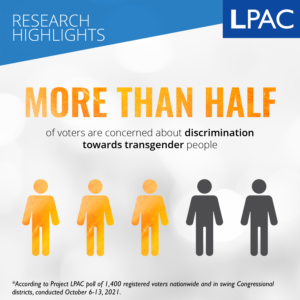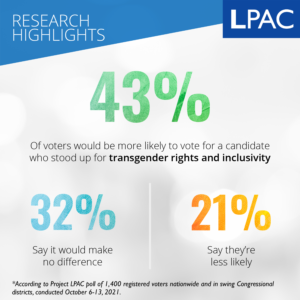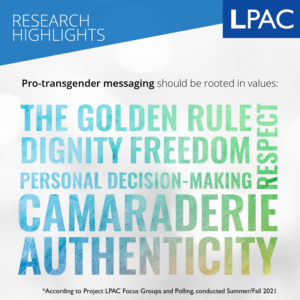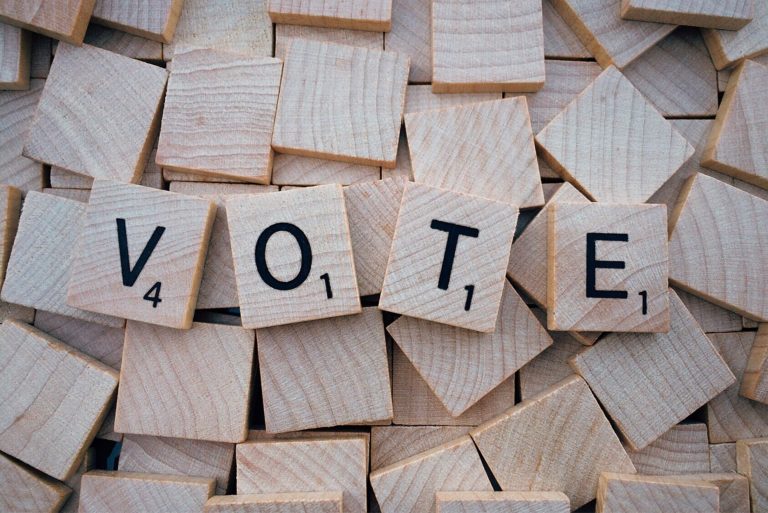Our team at Lake Research Partners recently conducted a survey of 1300 likely 2020 voters…
New Project LPAC Research on Voter Attitudes toward Transgender Rights and Legislation

The upcoming 2022 primary and general elections will be historic for LGBTQ+ women running for office. There will be record numbers of queer women running for at all levels of government – from gubernatorial and Congressional candidates down to city council. This milestone is good news for progress; however, on the campaign trail LGBTQ+ women are increasingly the targets of bad-faith messaging centered on transgender issues.
An early example comes from a 2020 U.S. House race in Texas’s 23rd Congressional district. Gina Ortiz Jones, an openly gay woman, was attacked in multiple television ads, which claimed her support for transgender rights was a danger to national security and that she would close military bases to divert funds to pay for “transgender re-assignment surgeries.” Later, at the 2021 CPAC Conference, former President Trump gave a speech stating that women’s sports would “die” if transgender athletes were able to compete. Ultimately, more than 115 bills targeting the transgender community were introduced in state legislatures in 2021, many of which were signed into law.
In the summer of 2021 Project LPAC took the lead in commissioning a study with Lake Research Partners to study pro-transgender messaging for advocates of equality, whether they be organizations, candidates, or activists. The project consisted of focus groups and an online survey of registered voters nationwide and in swing Congressional districts. This research provides both baseline data around voter attitudes towards transgender issues and messaging recommendations to answer attacks and lift transgender people and their rights. We now have concrete data about messaging that is most effective in paid communications, talking points, stump speeches, and more, affirming transgender individuals and the issues they face.
Here are some of the highlights from the project:
- 1 in 3 voters surveyed know someone who is transgender. These voters are significantly more likely to vote for candidates who champion transgender rights.

- More than half of voters surveyed are concerned about bias or discrimination toward transgender people.

- A plurality of voters (43%) say they would be more likely to vote for a candidate who stood up for transgender rights and inclusivity, and a third said it would not make a difference.

- According to focus group and survey data, voters identify strongly with values-based messaging around transgender issues. Messages should be rooted in concepts like the golden rule, respect, dignity, freedom, and authenticity.
- After hearing values-based messaging, more voters report they are more likely to vote for candidates who stand up for transgender rights, shifting from 43% to 56%. The number of voters who say they are less likely to support pro-transgender candidates remains stable – meaning there is no backlash to values-based messages.






